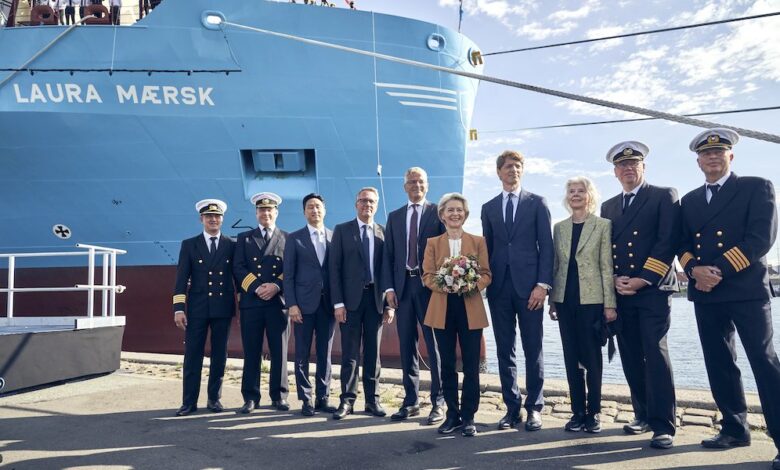Europe to give shipping priority access to greener fuels

The European Commission published on Tuesday its proposal for a 2040 climate target laying out the pathway to make the European Union climate neutral by 2050 with shipping shown its green pathway, and a noticeable rapprochement with the industry’s global regulator, the International Maritime Organization (IMO).
European shipowners welcomed the commitment of the commission to address “barriers to the deployment of low- and zero-emissions fuels including e-fuels and advanced biofuels” in shipping and to give the sector “priority access to these fuels over sectors that have access to other decarbonisation solutions”.
The commission acknowledged that the increased costs of sustainable fuels is a key factor for the competitiveness of shipping and has committed to consider regulatory measures to foster their production.
“It’s the first time we see such a strong commitment to give shipping priority access to low- and zero-emission fuels such as advanced biofuels and e-fuels. The price gap is immense, as the cost of sustainable fuels can be four times higher compared to fuels currently used in shipping. We look forward to working with the commission to translate this commitment into immediate action, and to leverage the earmarked ETS revenues through dedicated calls already under the current Innovation Fund” said Sotiris Raptis, secretary-general of the European Community Shipowners’ Associations (ECSA).
ECSA endorsed the commission’s consideration of differentiated targets for shipping in alignment with the IMO’s greenhouse gas (GHG) strategy, under the three scenarios for the decarbonisation of the European economy. The IMO GHG strategy, which was agreed in July 2023, sets up a target of net zero GHG by 2050, with objectives of at least 70% striving for 80% by 2040.
“After the historic agreement of last July, this is a strong message of support to the IMO to develop the measures necessary to reach net-zero GHG emissions from international shipping by 2050. It’s also an important step forward to ensure European shipping operates on a level playing field” said Raptis.
In previous years, the EU, frustrated by slow progress at the IMO, had gone down on its own route for creating green regulations for shipping, something that saw the industry included in the bloc’s emission trading scheme from the start of this year.
Sofie Defour, climate director at the NGO Transport&Environment, commented: “It’s time to put an end to uncontrolled growth and profit of transport’s biggest polluters and instead focus on helping them go green by 2040.”
